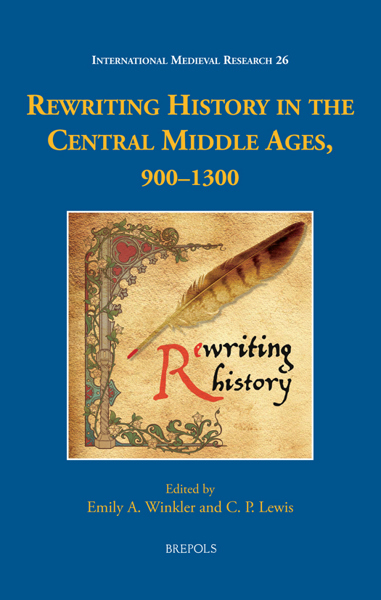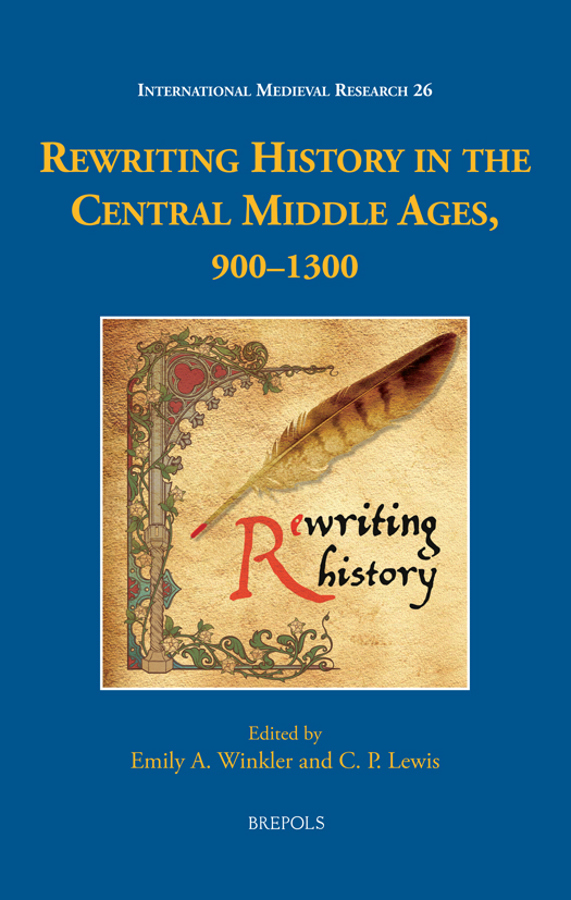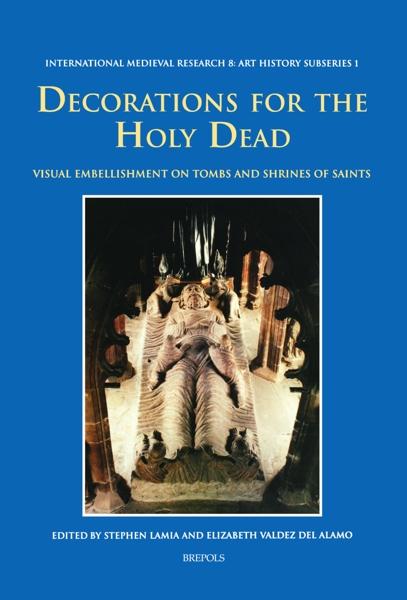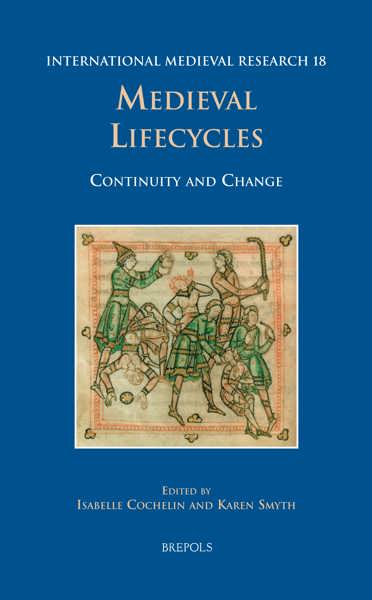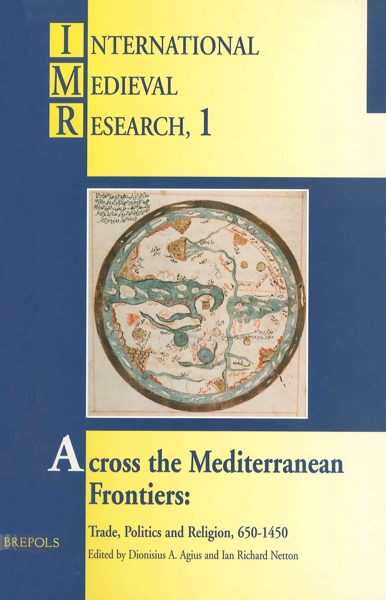
Rewriting History in the Central Middle Ages, 900–1300
Emily A. Winkler, Chris P. Lewis (eds)
- Pages: 342 p.
- Size:156 x 234 mm
- Illustrations:8 maps b/w, 8 maps
- Language(s):English
- Publication Year:2022
- € 95,00 EXCL. VAT RETAIL PRICE
- ISBN: 978-2-503-59686-0
- Hardback
- Available
- € 95,00 EXCL. VAT RETAIL PRICE
- ISBN: 978-2-503-59687-7
- E-book
- Available
How historians in the central Middle Ages rewrote the past to meet the needs of a changing present.
“ In sum, this is an engaging and interesting volume. The editors are to be praised not only for bringing together a set of essays that maintains a level of analytical continuity that belies the contributions' geographical and temporal differences, but also for the quality of the production. It can be all too rare these days to find published works that lack - at times quite severe - editorial issues, and this reviewer found none across the entire book.“ (Andrew Buck, in Sehepunkte, 22.10, 2022)
“In conclusion, this volume serves as a rich resource for anybody wanting to explore the myriad ways in which history was rewritten in the Central Middle Ages, and the equally numerous reasons for this.” (Paul Oldfield, in The Medieval Review, 02/12/2023)
“The book under review, edited by Emily A. Winkler and C. P. Lewis, gathers essays on the rewriting of historical texts broadly defined—annals, chronicles, poetry, annotated cartularies—in Latin, Greek, Armenian, Georgian, Middle Irish, and Old English in the central middle ages (…) as a set of essays on history writing with an eye to intertextuality the book is very successful.” (Erik Niblaeus, in H-Soz-Kult, 20.12.2023)
“This important and comprehensive collection focuses on how history was written and then re-written to suit changing times in the central Middle Ages (…) The book admirably investigates a genre that deserves careful scrutiny of the kind provided here.” (Sean McGlynn, in Medium Ævum, XCII/2, 2023, p. 393)
« Dans l’ensemble, le lecteur sera frappé par l’importance des constantes réécritures politiques ou religieuses du passé, afin de l’adapter aux attentes des contemporains. Tous les articles montrent ce phénomène de manière éclatante.» (Pierre Courroux, dans Le Moyen Age, CXXX, 2024, p. 694)
Emily A. Winkler is Principal Investigator of a research project on medieval historical writing in England and Wales, funded by the Arts and Humanities Research Council. She is a Research Fellow at St Edmund Hall and the Faculty of History at the University of Oxford. An historian of medieval thought and writing, she has research interests in responsibility and leadership, conquest and diplomacy, material culture, and emotion and experience.
C. P. Lewis is Research Fellow in the Department of History at King's College London, and Senior Fellow at the Institute of Historical Research. He has published on English and Welsh history in the central Middle Ages and has edited both Anglo-Norman Studies and Haskins Society Journal. Besides his published articles on the twelfth-century Life of Gruffudd ap Cynan, he has work in hand on the Anglo-Norman historians Orderic Vitalis and William of Malmesbury.
In the Middle Ages, rewriting history was a distinct activity within the larger sphere of historical writing. Rewriting started with existing historical accounts, recasting them into new forms as new stories about the past. Changes in circumstances drove rewriting, encouraging historically literate writers and their patrons to examine their histories anew, to jettison what no longer made sense or was useful, and to supply new material to fill gaps or expand ideas. Writers rewrote not only for the present and future, but also for the past. They curated the past and reorganized its intellectual artifacts, thereby revealing new facets of old history to future eyes.
Rewriting was a defining characteristic of the central Middle Ages (900–1300), distinct both from earlier traditions of universal history and from later traditions of making continuations which left the narrative core intact. Reimagining the past by rewriting happened across genres, in the vernaculars as well as the universal languages of Latin and Greek, and across Europe, west and east. The chapters in this book explore the reasons and methods for rewriting, ranging across the Anglo-Norman realm, France and Flanders, Christian Iberia, Norman Italy and the Mediterranean, Byzantium, and Georgia and Armenia. Together, they show a set of rewriters who made themselves the authorities for their own age.
Preface, Abbreviations
Introduction
Curating the Past in the Central Middle Ages — Emily A. Winkler and C. P. Lewis
Broad Themes
From Lake Constance to the Elbe: Rewriting a Reichenau World Chronicle from the Eleventh to the Thirteenth Century— Roman Deutinger
The Careful Look: Historical Culture of Gaeldom c. 1100—Patrick Wadden
Rewriting Histories in Medieval Caucasia—Nikoloz Aleksidze
Rewriting History at the Court of the Komnenoi: Processes and Practices—Maximilian Lau
Comparisons
Rewriting the Past: Monastic Forgeries and Plausible Narratives—Robert F. Berkhofer III
Rewriting English History for a High Medieval Republic of Letters: Henry of Huntingdon, William of Malmesbury, and the Renaissance of the Twelfth Century —Jaakko Tahkokallio
Writing History on the Order of the Hautevilles: Geoffrey Malaterra and William of Apulia’s Accounts of Guiscard’s Expedition to Constantinople (1081–82) —Marie-Agnès Lucas-Avenel
Case Studies
Women in the D Chronicle: Writing and Rewriting the Anglo-Saxon Chronicles—Pauline Stafford
Æthelred the Unready and Edward the Confessor in William of Malmesbury and Henry of Huntingdon: Two Sides of the Same Coin? —Alheydis Plassmann
Selfhood and Perspective in Orderic Vitalis’s Rewriting of English History—C. P. Lewis
Rewriting a History of Castilian Dominance in the Age of the Separation of the Crowns of León-Castile (1031–1252) —Kyle C. Lincoln
Thirteenth-Century Memories of the Normans in the Mediterranean in the Estoire de Tancrède de Hauteville—Gregory Fedorenko
Index
